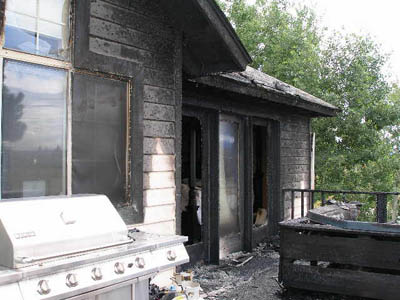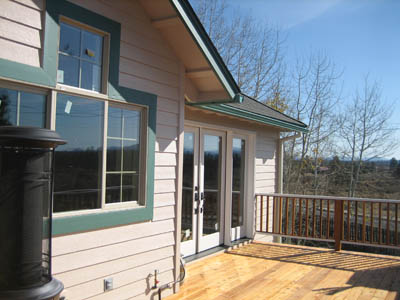Ayala Insurance Agency, Inc.
210 - 977 - 9188
dayalainsurance@yahoo.com
660 SW Military Dr
Suite S
San Antonio, TX 78221
ph: 210-977-9188
fax: 210-977-9474
alt: 210-924-2832
dayalain
Homeowners Insurance 101
Homeowners insurance protects you from financial losses if your home or personal property is damaged or destroyed by a storm, fire, theft, or other event stated in your policy. The policy will pay to repair or replace your property up to your policy’s limits.
It is important to know your policy limits and what’s in your policy. Make sure you read your policy carefully and understand your coverages.
Texas Homeowners Policies
You can buy a dwelling policy that covers only the structure of your house, but most homeowners buy a policy that combines five different coverages in a single policy:
- Dwelling pays for damage or destruction to your house and any unattached structures and buildings, such as fences, detached garages, and storage sheds.
- Personal property pays for theft, damage, or destruction of the contents of your house, including furniture, clothing, and appliances.
- Liability protects you against financial loss if you are sued and found legally responsible for someone else’s injury or property damage. A homeowners policy automatically provides $25,000 in coverage. You can buy up to $1 million in coverage for an extra premium.
- Medical payments pays medical bills for people hurt on your property. It also pays for some injuries that happen away from your home, such as your dog biting someone. A basic homeowners policy pays $500 in medical bills. You can pay extra and get up to $5,000 in medical payments coverage.
- Loss of use pays your additional living expenses (temporary housing, food, and other essential expenses) if you must temporarily move while repairs are made. Most policies pay 10 to 20 percent of the amount of your dwelling coverage.
Replacement Cost VS. Actual Cash Value Coverage
Replacement cost is what you would pay to rebuild or repair your home, based on current construction costs. Replacement cost is different from market value and does not include the value of your land. If you are not sure of the amount it would cost to rebuild your home, your company or agent usually has construction cost tables to help you determine the cost.
To receive full payment (minus your deductible) for a partial loss, such as a hail-damaged roof, you must insure your house for at least 80 percent of its replacement cost. If you insure your house for less than 80 percent of the full replacement cost, the insurance company will only pay a portion of the loss.
Unless you buy an endorsement to increase your coverage, some policies only provide actual cash value coverage. Actual cash value is the replacement cost of your property minus depreciation. If your home is destroyed and you only have actual cash value coverage, you may not be able to completely rebuild.
Read your policy carefully to know whether it offers replacement cost coverage or actual cash value coverage.
Coverage for Your Personal Property
Some policies automatically cover household contents – furniture, clothes, appliances, etc. – up to 70 percent of the amount of your dwelling coverage. This means if your house is insured for $100,000, its contents can be insured for up to $70,000. You can get more coverage by paying a higher premium.
Personal property coverage pays only the actual cash value of damaged, stolen, or destroyed household goods unless you buy replacement cost coverage. Actual cash value is an item’s replacement cost, minus depreciation.
Replacement cost coverage offers you more protection than actual cash value coverage. For example, if a burglar steals your six-year-old television set, and you only have actual cash value coverage, you get only what you would expect to pay for a six-year-old television set. With replacement cost coverage, the insurance company pays to replace your TV with a new set similar to the stolen one.


What Homeowners Policies Do and Don’t Cover
| Most Policies Cover Losses Caused by | Most Policies Do Not Cover Losses Caused by |
| Fire and lightning | Flooding |
| Smoke | Earthquakes |
| Explosion | Termites |
| Theft | Insects, rats, or mice |
| Vandalism and malicious mischief | Freezing pipes while your house is unoccupied (unless you turned off the water or heated the building) |
| Riot and civil commotion | Wind or hail damage to trees and shrubs |
| Aircraft and vehicles | Losses if your house is vacant for 60 days or more |
| Windstorm, hurricane, and hail (unless you live on the Gulf Coast) | Wear and tear or maintenance |
| Sudden and accidental water damage | Water damage resulting from continuous and repeated seepage |
Other Residential Policies
- Renters insurance. A landlord’s insurance does not cover a renter’s personal property. Renters insurance covers your belongings, provides liability protection, and pays additional living expenses if a fire or other event stated in your policy forces you to move temporarily from your rented home.
- Condominium insurance. Condominium insurance matches the benefits of renters insurance, and also covers damage to improvements, additions, and alterations to the condominium unit.
- Townhouse insurance. Townhouses may be insured by either an individual homeowners policy or an association master policy. If a townhouse is owner-occupied and the townhouse association does not have a master policy on the building, you can purchase a homeowners policy on your individual unit. If the association has a master policy, you should get a Texas tenant homeowners policy to insure your personal property.
- Mobilowners insurance. Mobile homes without wheels and resting on blocks or a permanent foundation qualify for a homeowners policy. However, most mobile homes are insured by a mobilowners policy. A mobilowners policy is actually an auto policy that covers mobile homes used as residences. Mobilowners policies offer extremely limited coverage.
- Farm and ranch insurance. Farm and ranch owners policies insure homes outside city limits on land used for farming and raising livestock. You can pay extra to get coverage for certain farm equipment and outbuildings.
Copyright 2010 Ayala Insurance Agency. All rights reserved.
660 SW Military Dr
Suite S
San Antonio, TX 78221
ph: 210-977-9188
fax: 210-977-9474
alt: 210-924-2832
dayalain
